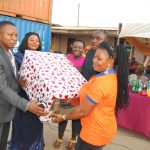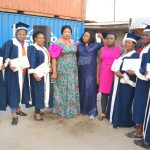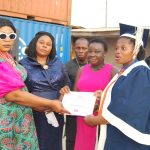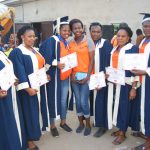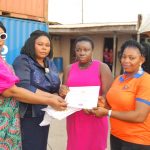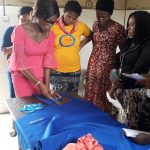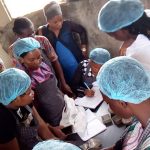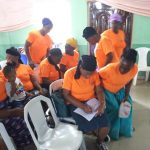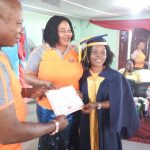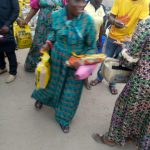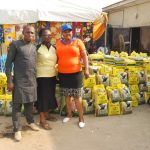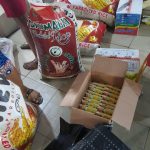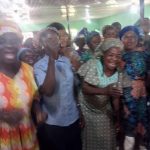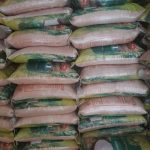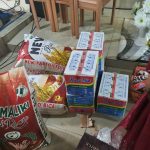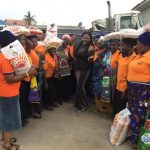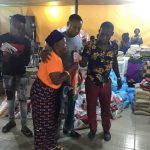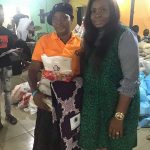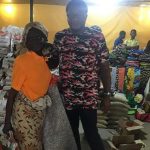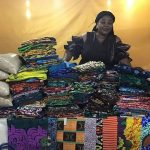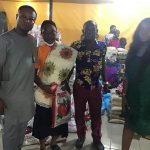ABOUT US
Empowering Widows, Orphans and the Less Privilege.
WHO WE ARE
EMPOWER WOMEN CHILDREN & DISABLED PERSONS INITIATIVE (EWOCDI) Foundation is a global philanthropy base in Lagos State Nigeria that improve the livelihoods for the needy in the communities where we work.
We provide capacity-building (Skill acquisition) for vulnerable people in the communities where we. We are also committed to improving outcomes in the lives of at-risk Children, Widows, Orphans and Less privilege.
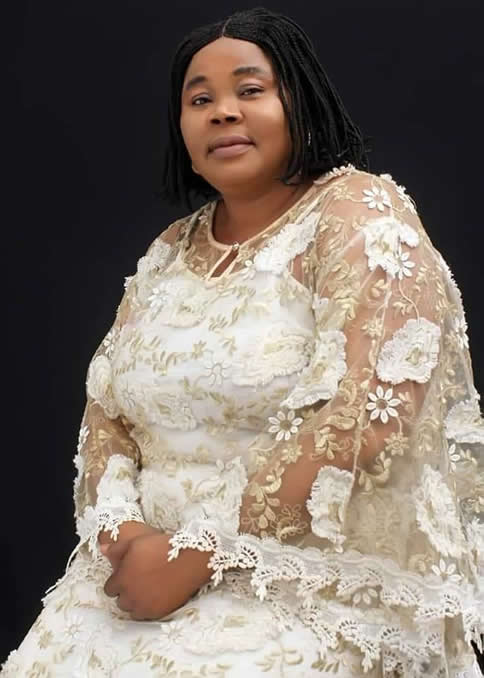
Mrs. Tina - Sam Ibekwe
(Founder / Pioneer)
WHAT WE DO
BACKGROUND AND JUSTIFICATION
BACKGROUND
Latest data on unemployment by the National Bureau of Statistics suggest that there is a very high rate of unemployment among women in Nigeria with over 12.2 million females, as against 9.5 million males being unemployment as at 2018. The data indicates a surge in female unemployment to 31.6 percent from 26.6 percent in the third quarter of 2018 while male unemployment in the same period rose to 22.9 percent from 20.3 percent. These data are still on the rise currently.
There is increased government attention to the issue of unemployment in Nigeria but the effort has not made much impact for women in the rural areas or Suburban areas of Lagos. Since the year 2008 the EWOCDI, a non-governmental organisation that is committed to the empowerment of women, children and disabled persons to improve their livelihoods, has initiated interventions aimed at addressing this challenge. It has made supporting women empowerment an integral part of its programming. This is because of the recognition that women in Lagos are disadvantaged in their participation in the economic processes of the state. The organisation has been able to train women to be able to contribute meaningfully to the livelihoods of their families and much learning has been made from the interventions to help in improving in the programming to empower more women.
Over the years we have been able to support our target beneficiaries through subsidized vocational skills trainings and food supports. We have made a lot of learning in the process and this has led to the evolution of our three interrelated anchor programmes namely Women Empowerment and Engagement Programme (WEEP), Children Education Subsidy Scheme (CHESS) and Household Support Scheme (HOSS).
EMPOWERMENT
WOMEN EMPOWERMENT AND ENGAGEMENT PROGRAMME (WEEP)
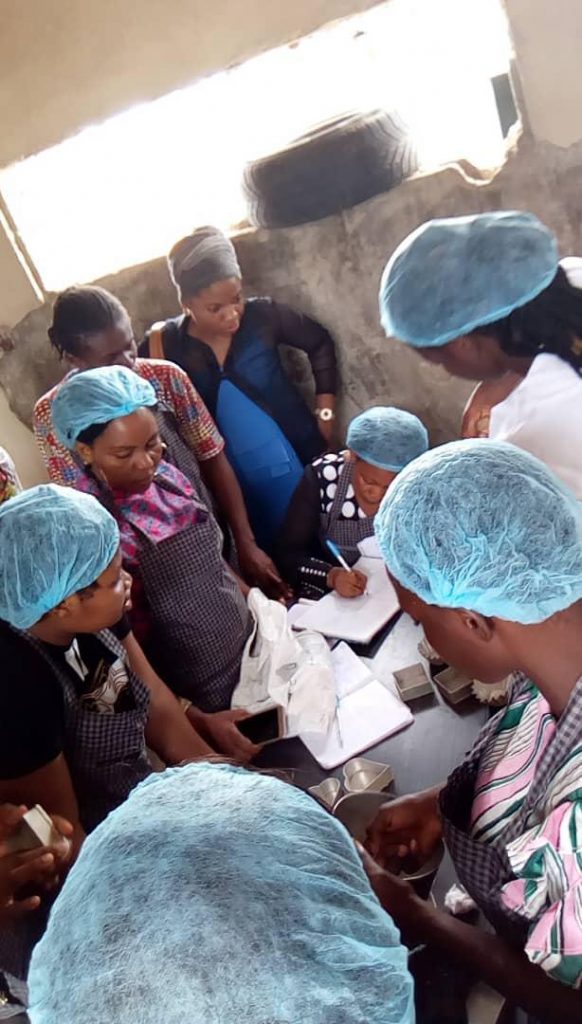
Previous training programmes aimed at empowering the women had seen them complete their training in various skills to increase their economic activities. But, many of them fall out of employment not long after completing their trainings and starting their small scale businesses. This situation has been identified to have been occasioned by the weak support systems in our previous programming. This has necessitated some crucial reviews to make our programming more sustainable.
Our current initiative is geared towards providing a platform where the women can be trained and after their training are organized in small groups to build strong support systems and also enable them source for small funds from banks to expand and grow their businesses. The training shall be in activities that have the potentials for quick wins and are in high demands in the local market. The women will also be supported with periodic training in basic business management. This initiative is projected to commence in February every year.
The WEEP provides a platform for women to be trained in relevant vocational skills and supported to organize as small groups of business owners in running their individual business through a common shop, the WEEP Shop. The WEEP Shop will be run by a 10-member group like a cooperative after the women have been trained in various vocational skills. Their goods and services will be offered at competitive prices. The women will be followed up for a year and supported with business development and advisory services to ensure the sustainability of their businesses. It is targeted that 700 women will be empowered annually through this programme.
Our initiatives, which have been fully funded by donations from private individuals and organizations’, will continue to emphasize on strengthening vocational skills and business management skills of potential and existing women entrepreneurs. In addition to that, efforts will be made to strengthen the capacity of the women to organize and function as local business associations and service providers. Our projects have helped in the promotion of women’s entrepreneurship and provided us avenues to learn about factors affecting women entrepreneurs in Lagos, particularly at Ejigbo LCDA and thus we have increased our knowledge base on women’s entrepreneurship in Lagos.
In empowering women, actors may employ varying strategies and approaches. Our organization seeks to instill a business sense into newly started women’s enterprises and their associations. In the past, we have employed a welfare approach where we make skills training for women a heavily subsidized scheme but we have learned that this has the potentials of distorting the development of a commercial business service market among beneficiaries in our target communities.
Whereas subsidized training may be reasonable in the early phase of our interventions, we have learned that this is not sustainable. There is a strong need to develop a commercial market for business services provided by our beneficiaries. This will enable women supported by EWOCDI to be able to evolve their businesses. The project is aimed at making women entrepreneurs independent from subsidized training services, an approach that will prepare them to fend for themselves when they are weaned from financial support from EWOCDI. We seek to build up a lasting capacity within the communities where we work to promote growth in women’s enterprises. Therefore, the project will work closely with Community Based Organisation (CBOs), Faith Based Organisations (FBOs), Local Government Authorities, local Business Development Services Providers in identifying, selecting, training and supporting women beneficiaries to participate in the Women Empowerment and Engagement Programme (WEEP). The WEEP will emphasize commitment, diligence, industry and teamwork among the beneficiaries.
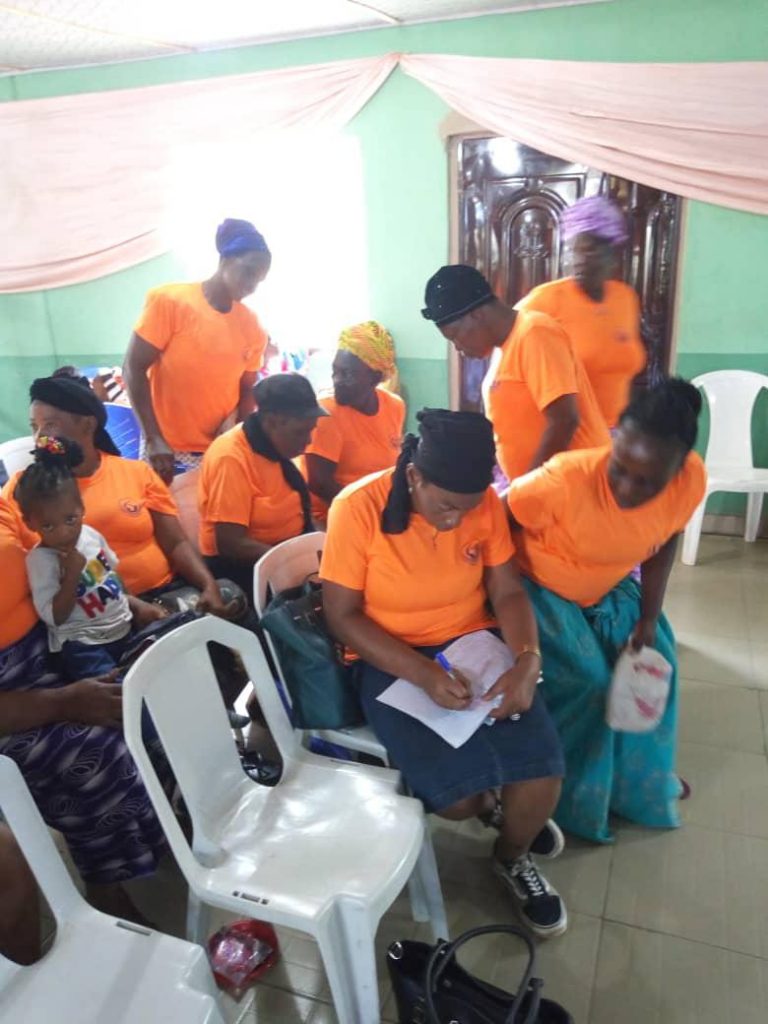
WELFARE
PROBLEM IDENTIFICATION
Our experience in the area of supporting women to grow businesses and improve the livelihood of their household over the years in Lagos state has exposed us to the gender dynamics in the SME sector in Ejigbo, where the majority of women’s enterprises are small, marginal, and informal. Up to now, a majority of Ejigbo women entrepreneurs have not been able to take advantage of business opportunities and resources available.
Repeatedly the women do not have the knowledge and capacity to recognize market potentials for their products. They also do not have the ability necessary to begin, develop, increase and run their businesses successfully. The reasons for these situations are related to factors such as the socio-cultural and religious customs which are deep-rooted in the communities where we work that sort of portray women as not capable of being natural business owners. Women’s business activities are often seen as complimentary sources of income to their household income, particularly to their husbands’ income and this may be the reason why the institutional supports to assist women in starting and expanding their businesses is so little. Furthermore, women being seen as the primary caretaker of the family and household are often restricted to their homes and most often are overburdened by difficulties such as catering for their children’s schooling and household nutrition. These leave them little chance to expand their often home-based businesses, network with other businesses, and market their products. This also limits women’s access to information on financial and non-financial business development services provided.
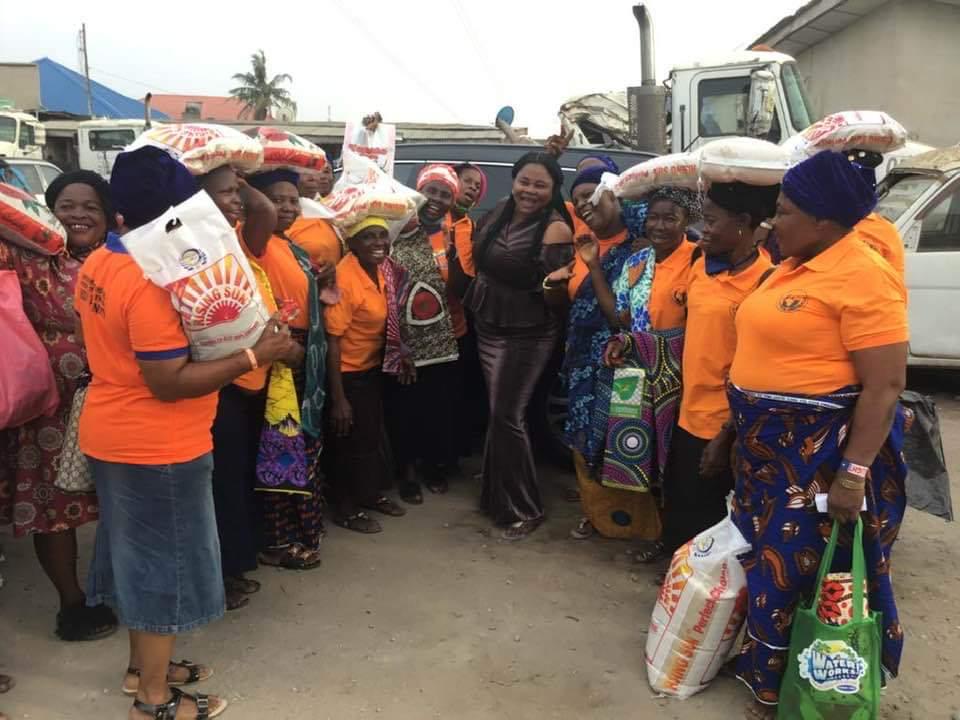
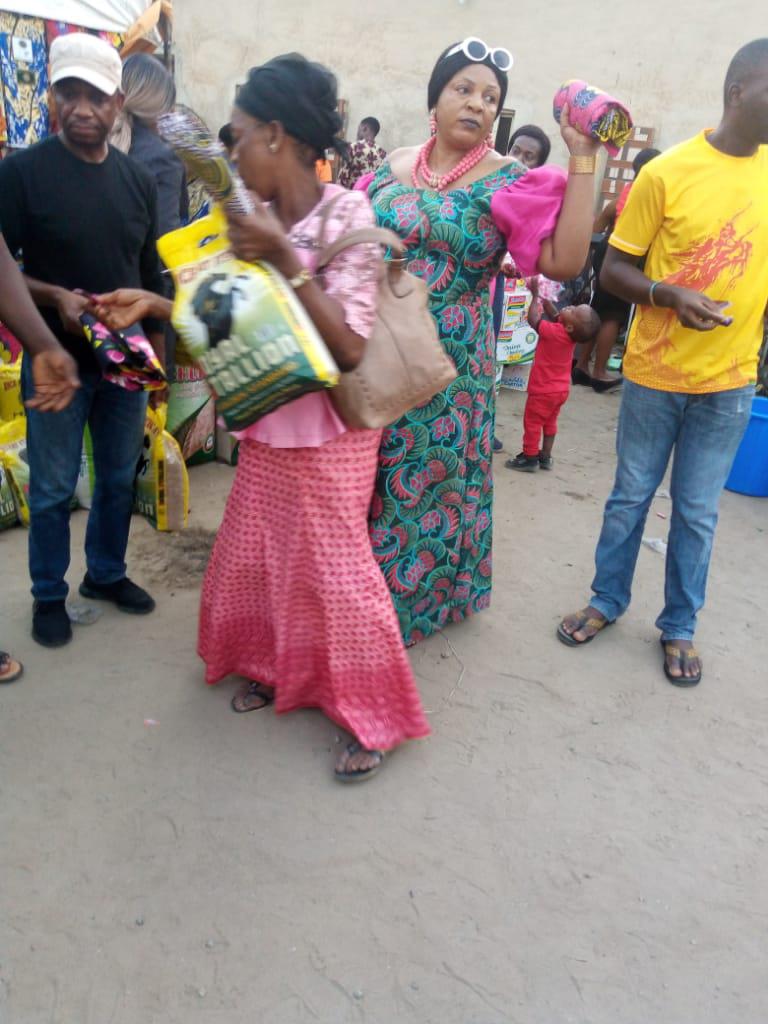
Another factor militating against the ability of women to develop the necessary skills to begin, develop, increase and run their businesses successfully is poor business-enabling environment in the local communities. This situation tends to frustrate small and micro women entrepreneurs from accessing financial products, services offered by business development providers, and sourcing of business inputs, technologies, and information. Also, high quality business development and business advisory services are difficulty to access in the communities.
Furthermore, small businesses owners still have difficulties in the financial markets. Access to loans by small businesses, especially those owned by women is still a huge challenge. There appear to be the preference by financial institutions for male-owned businesses in accessing of loans over women’s businesses. This is due to collateral requirements that many women are not able to meet. This is often the lack of information on how to access financial services among many women in the communities where we work.
There is an increase in efforts aimed at supporting small and micro entrepreneurs by the federal and state governments in Nigeria. A particular focus is creation of new financial products for business owners. Facilitating women’s access to these services and to effectively utilize financial products is a critical factor to enable women to expand their businesses. Women’s businesses are also critical for building a trade network within and outside Ejigbo. Some businesses supply products and provide services that need refinement to meet customer and market demands. A necessary and obvious response is a system of Business Development Services to enhance the market skills of women entrepreneurs and thus enabling their business growth.
OUR FACILITIES
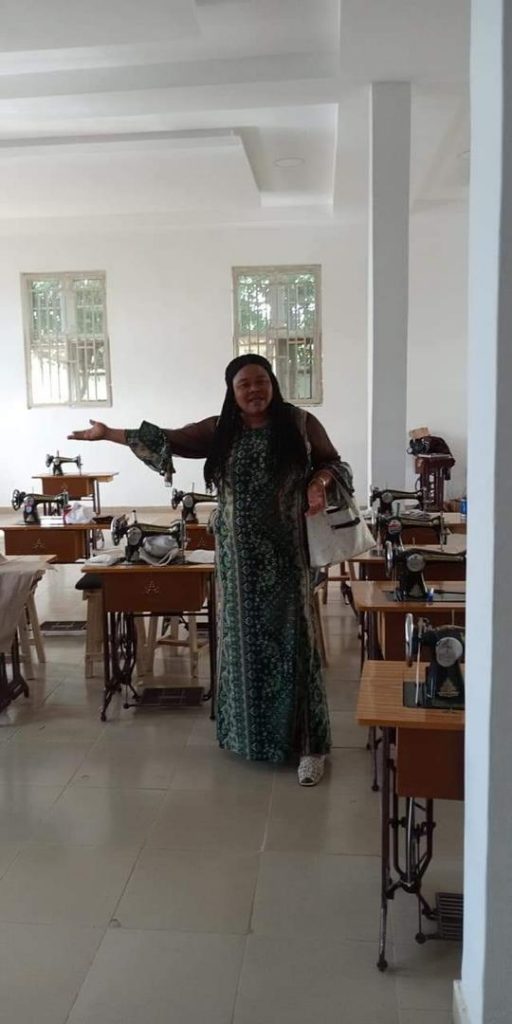
INTERVENTION INITIATIVES
From November 2020, EWOCDI will expand its current extensive livelihoods and microfinance programme into all communities where we work. Over the years we have been able to support our target beneficiaries through subsidized vocational skills trainings and food supports. We have made a lot of learning in the process and this has led to the evolution of our three interrelated anchor programmes namely Women Empowerment and Engagement Programme (WEEP), Children Education Subsidy Scheme (CHESS) and Household Support Scheme (HOSS).
The WEEP provides a platform for women to be trained in relevant vocational skills and supported to with seed funds to organize as small groups of business owners in running their individual business through a common shop, the WEEP Shop. The WEEP Shop will be run by a 10-member group like a cooperative after the women have been trained in various vocational skills. Their goods and services will be offered at competitive prices. The women will be followed up for a year and supported with business development and advisory services to ensure the sustainability of their businesses. It is targeted that 300 women will be empowered annually through this programme.
The CHESS will provide an opportunity for the children of some of the WEEP beneficiaries and others vulnerable families to be supported through school for a period of time when their parents would have been empowered through the WEEP or other programmes to be able to support their education. This programme is aimed at relieving the parents of the children of the stress of paying their school fees and helping them focus on building and sustaining their businesses. It is targeted that 600 children will benefit from this programme annually.
The HOSS will allow for indigent and vulnerable household to be supported with food supply for a period of 3 month during which at least a member of the participating households will have been empowered through the WEEP or other programmes to become independent of the household food support. This will allow for household nutrition and also serve as a motivation for the beneficiaries of the WEEP to become empowered. It is targeted that 400 households will be supported annually through this programme.


